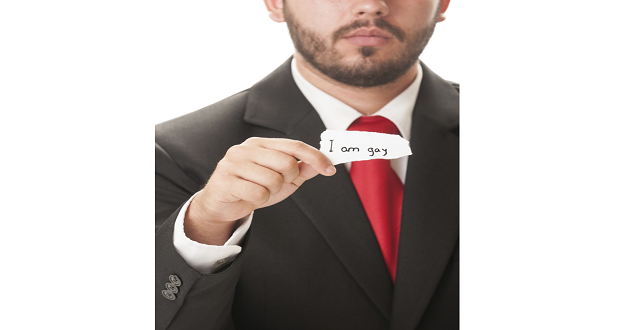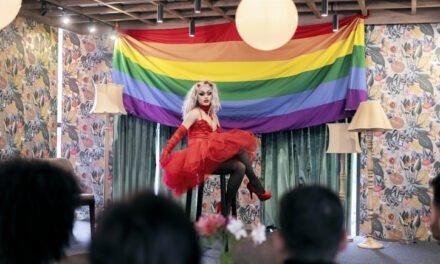
I wanted to be a lawyer when I was growing. By 12 years old, I was regularly visiting the library to borrow all sorts of legal books that I couldn’t understand. A tort was something I ate, after all. But the legal mumbo-jumbo didn’t bog down my dreams of standing in a courtroom.
Then I turned 13.
I no longer wanted to be Perry Mason. I wanted to be Gianni Versace. See, that’s when I realized I was gay. The year was 1991, well before gays had their own cable network, could marry, or became lawyers. At least that’s how the last part seemed to me back then. After all, young gay boys grew up to be dancers, hairstylists, makeup artists, fashion designers. That’s if they grew up at all. You know, HIV and AIDS.
So I developed an interest in fashion and went to college to become a fashion designer. In other words, I forced new dreams upon myself based on where I felt I’d be accepted. Fashion was never the right career path for me, but what choice did I have? I couldn’t imagine life in any other profession.
I mention this story to highlight the importance of visibility in the workplace. Of course, there have always been gay attorneys, but they haven’t always revealed their sexual orientation. The same is true for gays and lesbians in many professions. Had I grown up seeing openly gay people arguing in front of a judge or doing any number of jobs, I myself might be a lawyer. Or not. The point is, I felt as if I didn’t have much of a choice in careers.
I’m just not entirely sure whom to blame for this. Companies that didn’t champion diversity because it wasn’t a hot buzzword yet? Lawmakers who didn’t push for greater civil rights? Individuals who weren’t yet brave enough to be brave enough? Or maybe just myself?
I don’t know. And it doesn’t matter anymore. What does matter is the future—one in which everyone feels comfortable expressing their true selves in the office. But that’s not all. Gay attorneys, actors, businesspeople, soldiers, plumbers, and bus drivers certainly have a right to keep their sexual orientation private. But they are wrong to exercise it, because they don’t just have a choice to be themselves but a responsibility.
It’s a responsibility to their families, friends, work colleagues, and little gay boys growing up in rural areas of the country. Role models will always be important. And while I’m not an advocate of coercively outing people, I do believe that inclusion begins with individual honesty.
In The Glass Closet, former CEO of BP John Browne writes about the personal toll of keeping his homosexuality a secret. He also points out that homophobia still infects many corporations, preventing employees from bringing their authentic selves to work. Nonetheless, he insists that gays and lesbians come out.
He’s right. Otherwise, we make a mockery out of corporate diversity—because ultimately, we can’t have inclusion if we’re not willing to put ourselves in a position to be included.
Thankfully, the world has changed a lot since 1991. Today, I’m a freelance writer, which might be another mistaken career path. The difference is that now I’ll only have myself to blame.

















